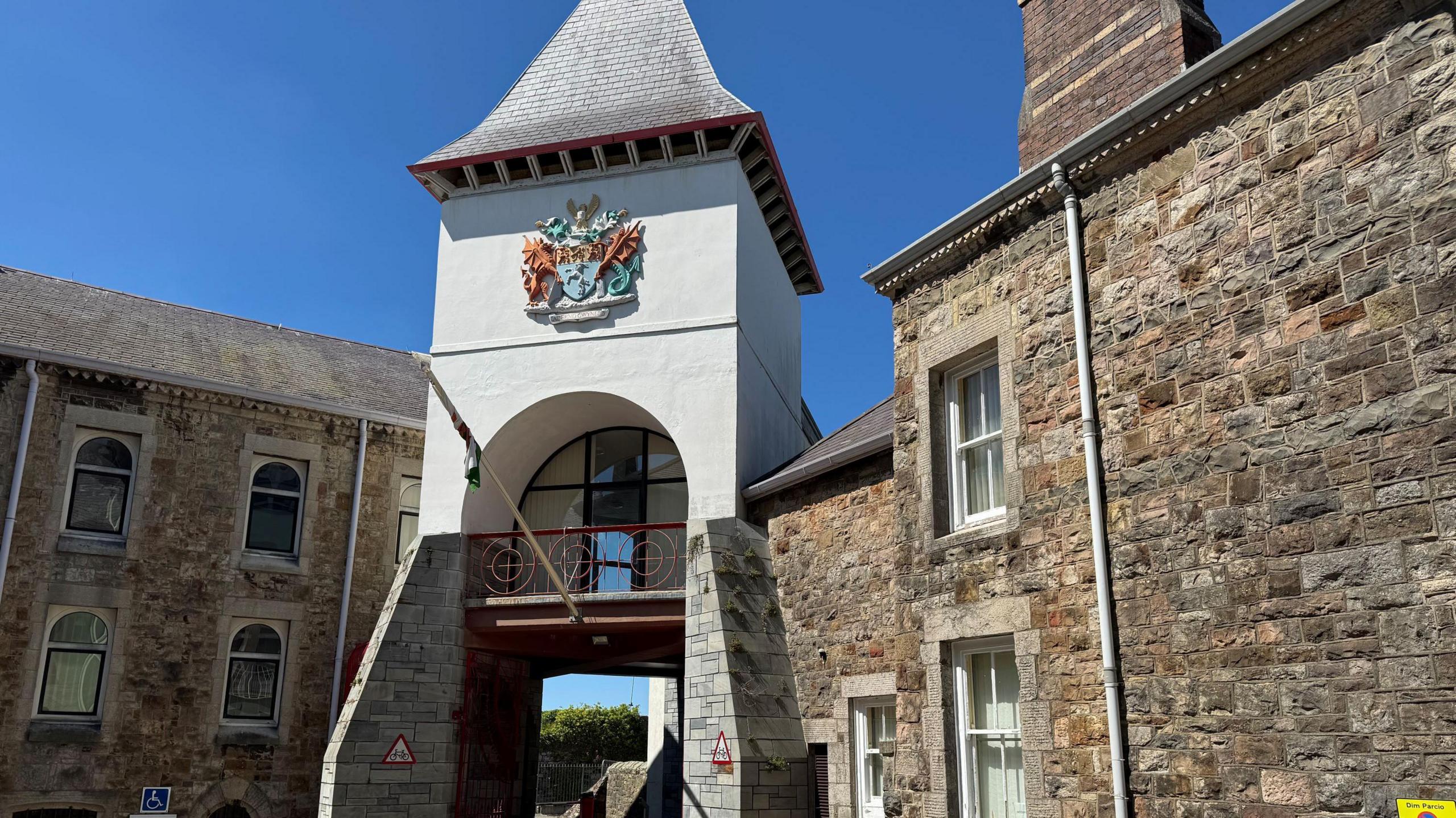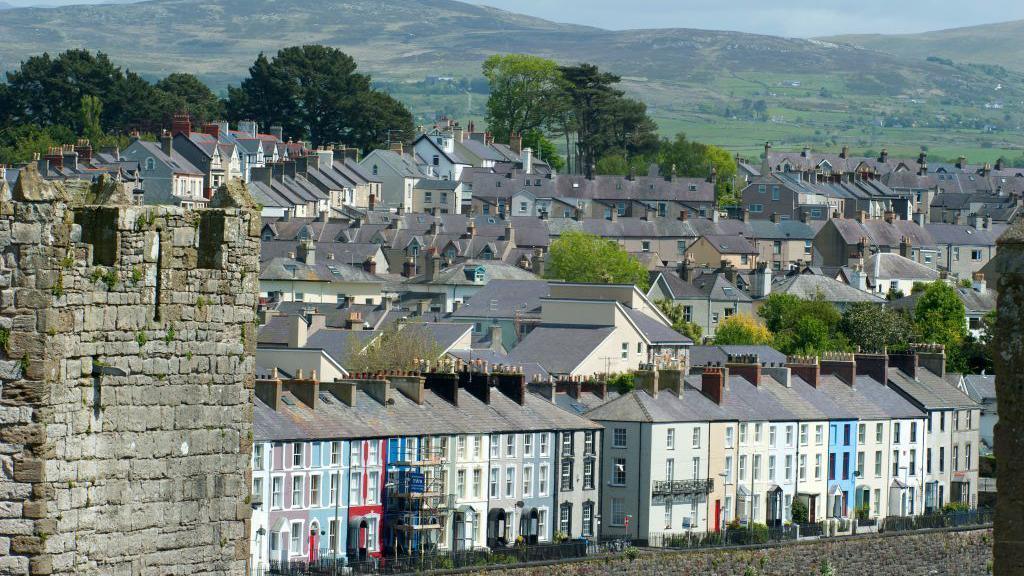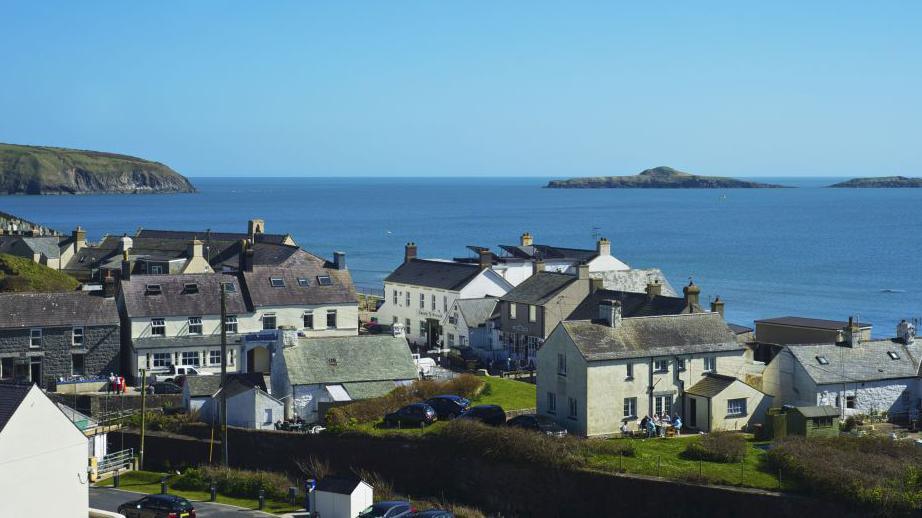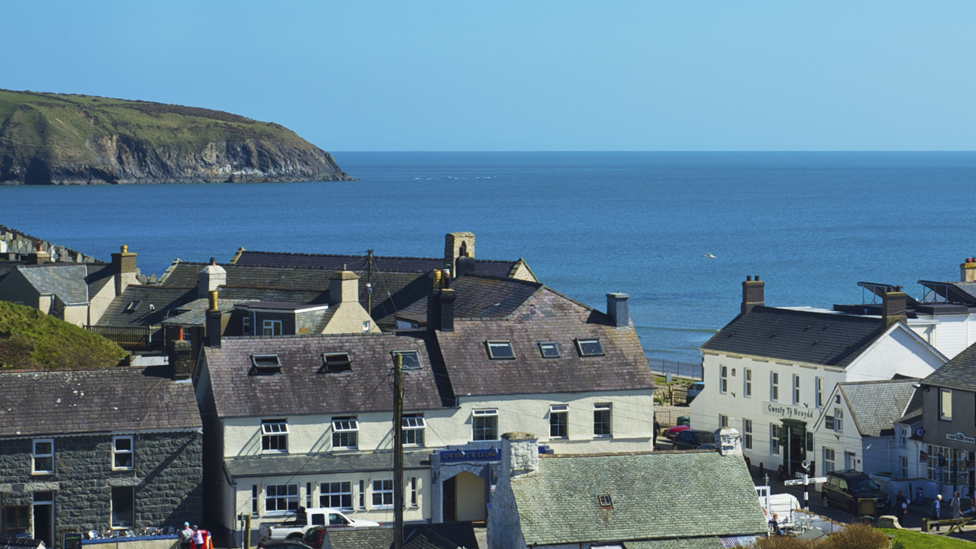Council lose battle to clamp down on second homes

Cyngor Gwynedd has lost a legal battle against measures to clamp down on second homes in the county
- Published
A council has lost a legal challenge against measures designed to clamp down on the number of second homes within the county.
In September 2024, Cyngor Gwynedd became the first authority to introduce a requirement for owners to get planning permission to turn a residential property into a second home or holiday let as part of efforts to address a housing shortage.
But unhappy with the measures, campaigners launched a legal challenge opposing Article 4, arguing it would "devalue homes" and make them harder to sell.
On Wednesday, after months of legal wrangling, a judge ruled that Gwynedd's cabinet had not been provided with the full picture before making their decision.
Cyngor Gwynedd said it was "extremely disappointed" with the ruling and intended to appeal.
The existing Article 4 measures, it said, would remain in force during the appeal window.
Fewer second homes bought after new rules, council says
- Published27 August
New rules begin on second homes and holiday lets
- Published1 September 2024
In October 2022, local authorities across Wales received more powers from the Welsh government to potentially control the number of second homes.
Welsh government amendments to planning regulations introduced three new classes of use - main home, second home and short-term holiday accommodation - meaning planning permission is required to convert a property into a second home.
Although owners of second homes in Gwynedd already pay a premium of 150% on top of their council tax bills, Article 4 was described as "a new tool to try to control the impact of second homes and holiday accommodation".
Gwynedd received 3,902 responses to a public consultation, attracting a mixed response.
In areas such as Aberdaron, where 30% of properties are second or holiday homes, the council voted in favour of these new measures.
Opposed to the plans, the People of Gwynedd Against Article 4 campaign group decided to launch a legal challenge.
They lost their original application for a judicial review, but on appeal were permitted to continue their challenge on the basis that Gwynedd council's cabinet "had either misled councillors or misunderstood the measures" when setting out to change the planning rules.
Following a High Court ruling in Cardiff on Wednesday, Mr Justice Eyre ruled the officers' report and the accompanying documents submitted to the council's cabinet before voting on its implementation meant councillors were "materially misled".
Mr Eyre said it was "apparent that the officers' report and the accompanying documents materially misled the members of the cabinet".
As a result, it could not be assumed the cabinet would have known that only material changes of use fell within the control of the planning system, rather than a "blanket measure" for all new holiday homes, said Mr Eyre.
"The members of the cabinet needed to be made aware that the Article 4 direction did not bring non-material changes of use within the scope of planning control," he added.
"The papers did not do that but instead, when read realistically, gave the incorrect impression that all changes would be controlled."

Gwynedd has the highest number of second homes in Wales
The People of Gwynedd Against Article 4 campaign group said they would now seek reimbursement of their legal costs from the authority.
"What happens next is in the hands of the council," they said.
"We will have to wait and see whether the council will start the process from scratch and give notice of their intention to approve another Article 4 direction.
"This would, of course, be extremely disappointing for all residents, however this time the council, cabinet, and residents of Gwynedd will know that it only applies to material changes of use and not all changes of use."
In a statement, Councillor Craig ab Iago of Cyngor Gwynedd, said: "We have been determined to do everything in our power to ensure that the people of Gwynedd have access to suitable homes in their communities.
"To achieve this, we have taken proactive steps including introducing the Article 4 Direction to manage the significant number of homes that are being lost to become second homes or short-term holiday lets.
"Research carried out before introducing the Article 4 Direction showed that 65% of Gwynedd households were being priced out of the housing market, with the problem even more prominent in communities where there is a high proportion of holiday homes.
"It is not a general measure for all new holiday homes, only for those where the change of use is 'relevant', or significant."
What is Article 4?
To try to manage the impact of second homes and holiday lets on communities, planning changes have been introduced in Wales, external.
This means planning authorities like councils and national parks can introduce what is known as an Article 4 direction to manage housing.
In Gwynedd, if means a homeowner will need planning permission to use a main home as a second home or short-term holiday let; to use a second home as a holiday let; or to use a holiday let as a second home.
This will not affect anyone who has a property already used as a second home or holiday let. Nobody will have to put in a retrospective planning application if the property's use is already established.
At present, it would be possible to use a home for part of the year as a holiday let without getting planning permission.
Eryri National Park Authority – the planning authority for the area also known as Snowdonia – is also considering bringing in Article 4.
- Published27 February

- Published16 July 2024

- Published24 September 2024
